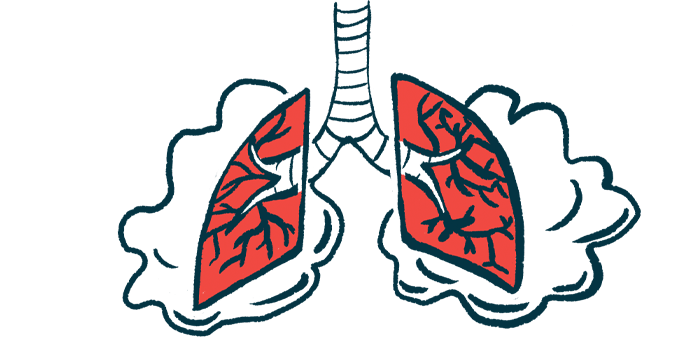Stopping inhaled therapies doesn’t mar mucus clearance with Trikafta
CFTR modulators like Trikafta target the underlying cause of cystic fibrosis
Written by |

Stopping treatment with inhaled supportive therapies hypertonic saline (HS) or Pulmozyme (dornase alfa) didn’t negatively affect airway mucus clearance among cystic fibrosis (CF) patients with mild lung disease who were being also treated with Trikafta (elexacaftor/tezacaftor/ivacaftor), a report suggests.
Indeed, the findings from the six-week study indicated stopping Pulmozyme was linked to significant gains in clearing mucus. The study, “The effect of discontinuing hypertonic saline or dornase alfa on mucociliary clearance in elexacaftor/tezacaftor/ivacaftor treated people with cystic fibrosis: The SIMPLIFY-MCC Study,” was published in the Journal of Cystic Fibrosis.
Before CFTR modulator therapies like Trikafta, CF patients were largely treated with various types of supportive care to keep their symptoms under control.
CFTR modulators target the underlying cause of the disease by improving the CFTR protein’s function, which means a single type of treatment can lead to clinical gains across the symptom spectrum.
In this changing treatment landscape, some patients and their doctors are considering discontinuing supportive therapies, the rationale being such treatments may not be worth it if they have no added benefit on top of the improvements from CFTR modulators.
SIMPLIFY CF treatment with Trikafta
Trikafta is particularly associated with improvements in mucociliary clearance (MCC), a defense mechanism wherein mucus is produced to trap potentially harmful invaders and then moved out of the airways to keep them clear. MCC is more difficult in CF, where thick and sticky mucus accumulates in the lungs.
Inhaled therapies that used to facilitate MCC include HS and Pulmozyme, which work differently to help thin mucus in the lungs and make it easier to cough out.
“If pwCF [people with CF] using [Trikafta] derive no additional clinical benefit from HS or [Pulmozyme], discontinuation could provide a substantial improvement in treatment burden and quality of life,” the researchers wrote.
The SIMPLIFY study (NCT04378153) evaluated the clinical effects of stopping these therapies in CF patients, ages 12 and older, who were on established Trikafta therapy across more than 80 clinics in the U.S.
The patients with relatively preserved lung function and who were using HS, Pulmozyme, or both when they entered the study were randomly assigned to either continue or discontinue one of them while staying on Trikafta.
Discontinuing either treatment didn’t negatively affect lung function over six weeks, results showed. Plus, stopping Pulmozyme could substantially cut treatment costs.
Here, researchers reported on the findings from the SIMPLIFY-MCC substudy, where they examined whether these discontinuations affected MCC in a subset of 34 participants. MCC was monitored using a technique called gamma scintigraphy at the study’s start and again six weeks later.
At the start, MCC parameters were similar between treatment groups. Discontinuing HS wasn’t associated with a significant change in MCC compared to continuing it over six weeks.
But stopping Pulmozyme was associated with significant improvements in MCC over those who continued it, indicating that stopping the therapy is both without negative consequences and could lead to greater mucus-clearing benefits for patients on Trikafta.
“PwCF with mild disease and restored CFTR function may have minimal benefit from DA and could potentially experience a deleterious effect of DA treatment,” wrote the researchers, who said more research in larger populations with a greater range of lung disease severity is needed “before any clinical management recommendations can be made.” Studies with longer follow-up times would also be valuable, they said.
The study was supported in part by grants from the Cystic Fibrosis Foundation.







